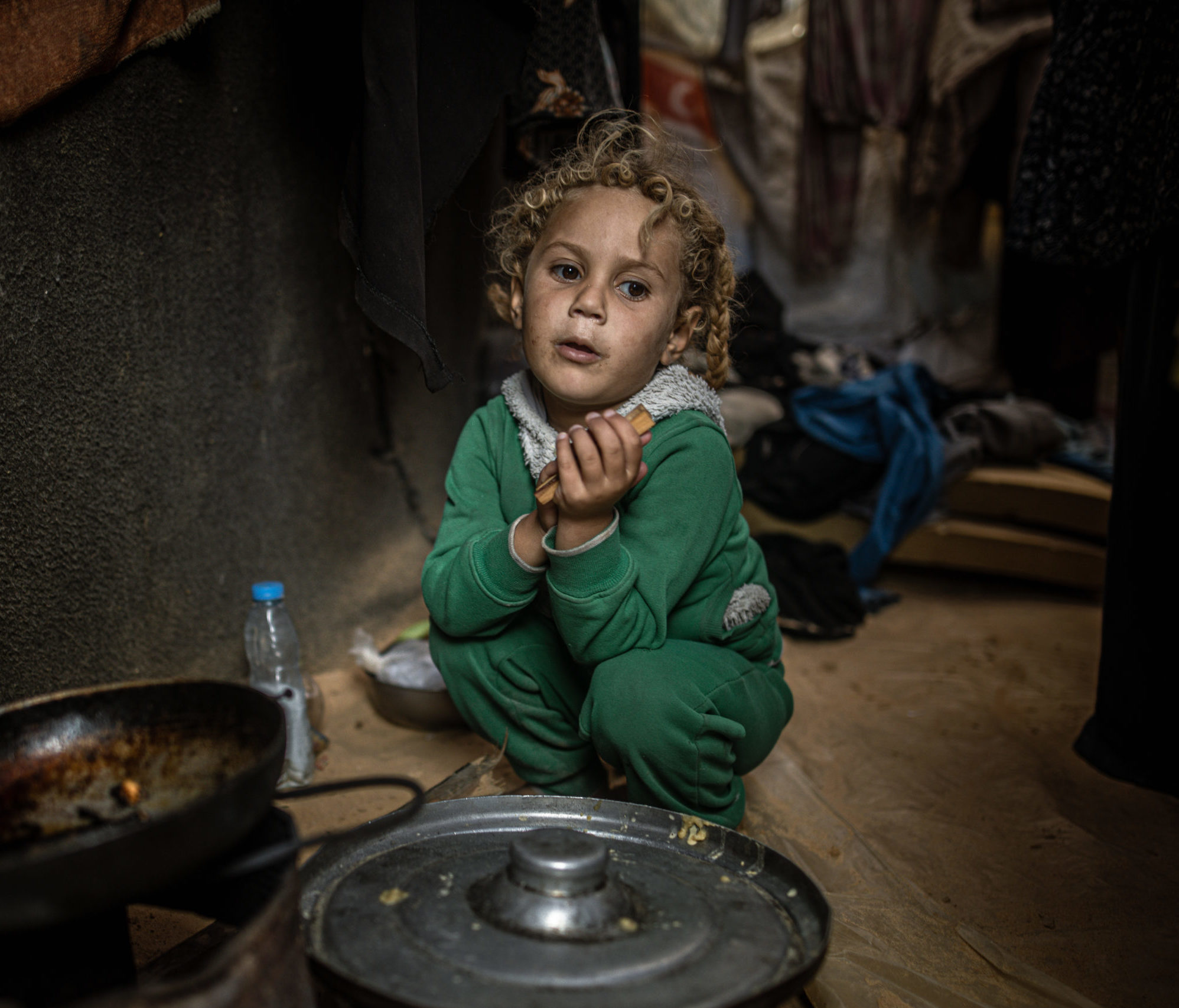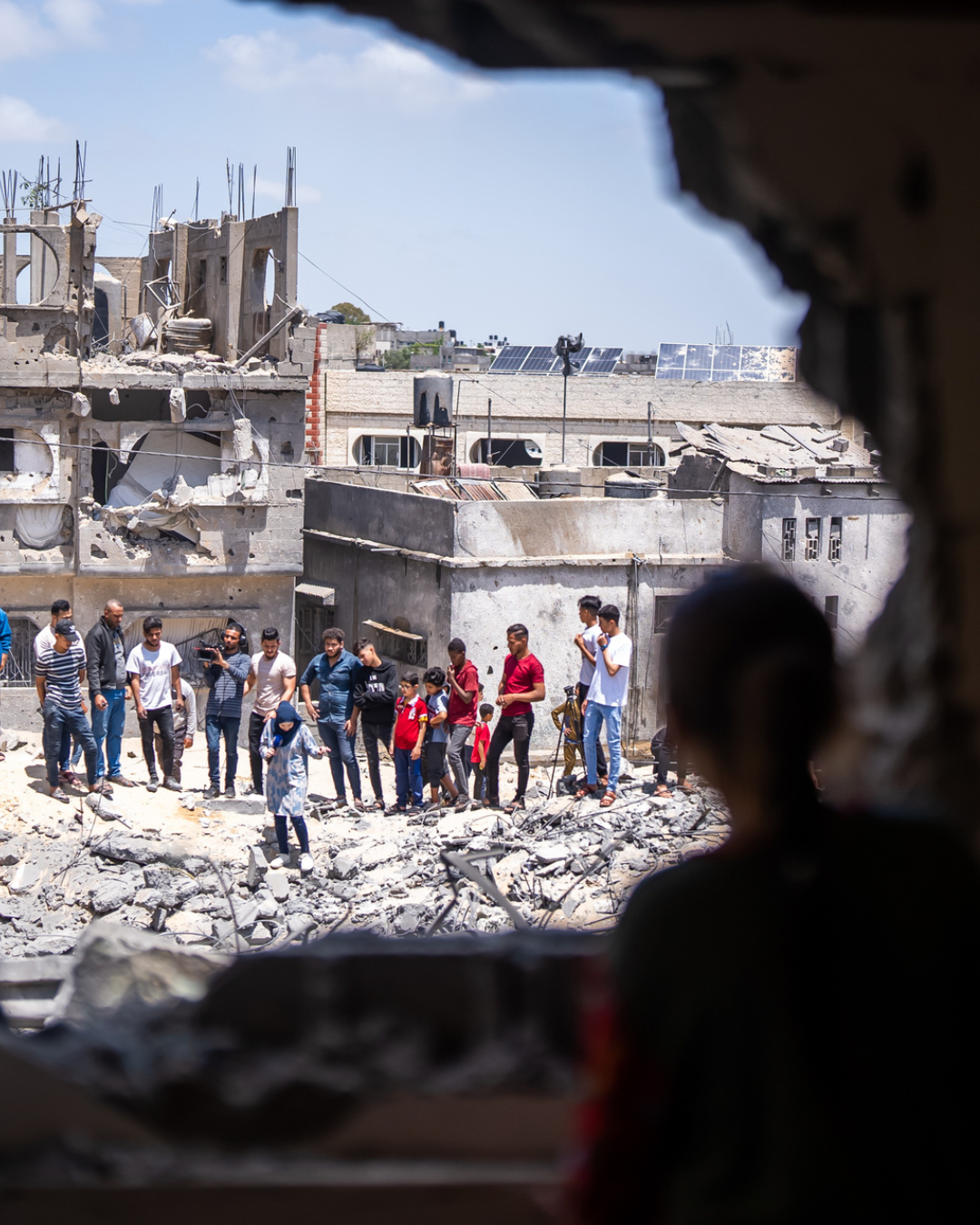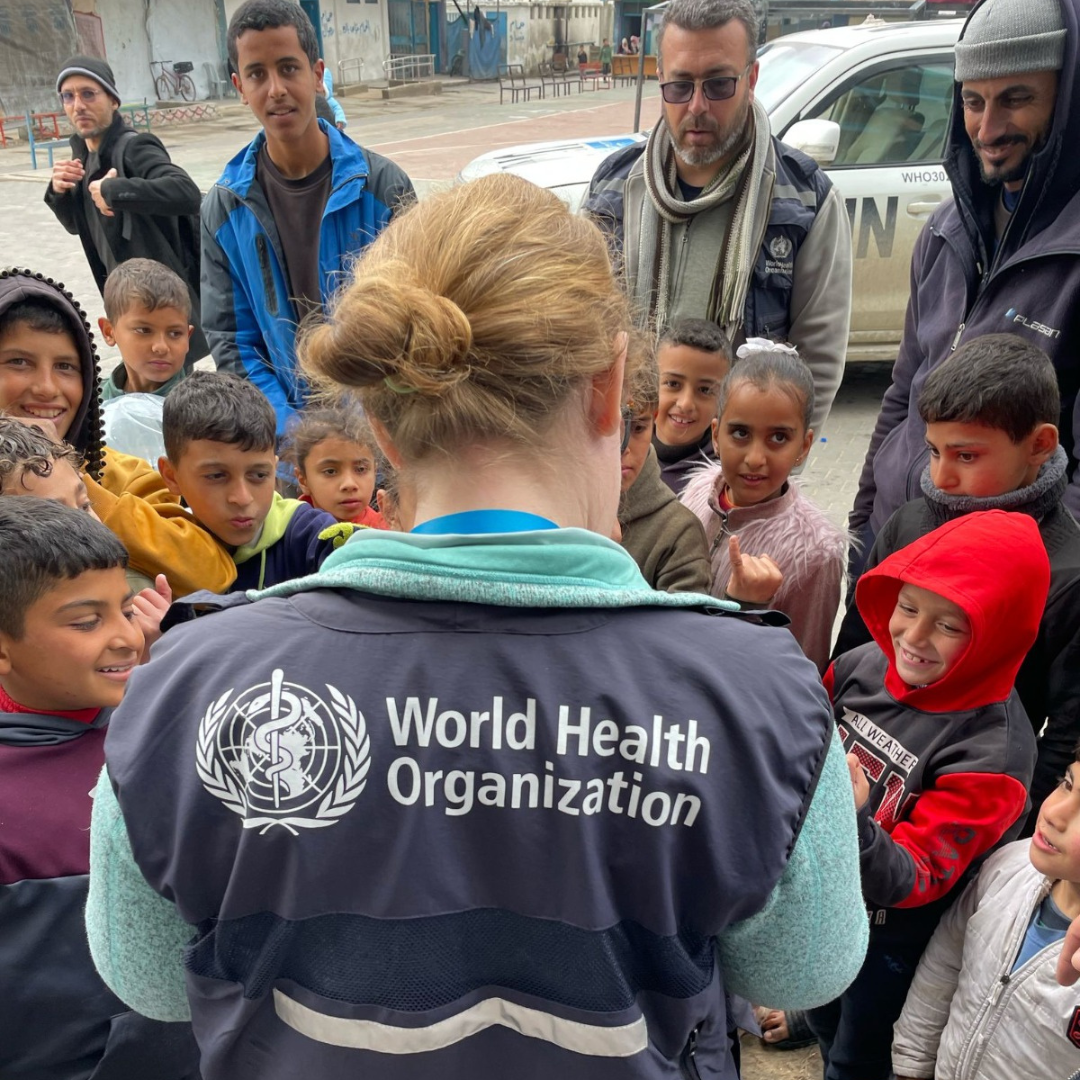Your donation gives urgent, lifesaving care to Gaza’s mothers and children in their moment of greatest need.

Every moment matters, and every donation can save lives.
Gaza’s healthcare system was already under immense strain—now, with major funding cuts, it’s reaching a breaking point. The few hospitals that are still operational are running out of essential supplies, patients are being turned away, and health workers are stretched beyond capacity. Your donation can help WHO deliver the urgent care that millions now risk losing.
Gaza is on the brink—hospitals are destroyed and vital aid is struggling to reach those in need. WHO teams are on the ground right now, delivering urgent medical care and critical supplies despite the ongoing crisis.
Your donation provides lifesaving trauma care, critical maternal health support, and medical supplies for mothers, children, and families in Gaza.
Since October 7, 2023, relentless violence has shattered Gaza’s healthcare system, leaving families desperate and suffering. As of May 2025, only 16 of Gaza’s 36 hospitals remain partially open, with just 1,822 beds—painfully inadequate for the thousands urgently needing care. Over 700 attacks on hospitals and clinics have forced medical teams to provide only basic treatments, leaving patients with chronic illnesses and critical injuries without essential care.
With medicine, fuel, food, and water running out, every day brings more needless loss and heartbreak. This is where you can save them.
Why urgent help is needed
More than 2.1 million people in Gaza are trapped—bombed, starved, and cut off from desperately needed aid, that continues to be stuck at blocked crossings. Since the ceasefire collapsed in March 2025, intensified violence has pushed Gaza’s fragile healthcare system to the breaking point. Severe funding cuts have deepened the suffering, putting 71,000 young children and nearly 17,000 pregnant and breastfeeding mothers at imminent risk of malnutrition.
Every day without action means more families face unbearable loss.

WHO’s Response
As you read this, WHO teams are in Gaza, working tirelessly to keep people alive amidst unimaginable challenges. Between March and May 2025 alone, WHO delivered 880,000 liters of fuel to health facilities, ambulance providers, and partners—ensuring vital services continue despite the chaos. WHO has also deployed 22 national and international Emergency Medical Teams (EMTs) across the Gaza Strip, providing surgical care, emergency support, and treatment for chronic illnesses.
Medical evacuations remain as lifelines of hope. By May 2025, WHO has coordinated and facilitated the evacuation of more than 4,800 patients, including trauma survivors, cancer patients, and critically ill children, bringing urgently needed care and safety.

“With your support, we will save lives, meet critical health needs for the most vulnerable, and help communities emerge from crisis with a greater ability to tackle future health threats.”
– Dr Tedros Adhanom Ghebreyesus,
Director-General of the WHO
